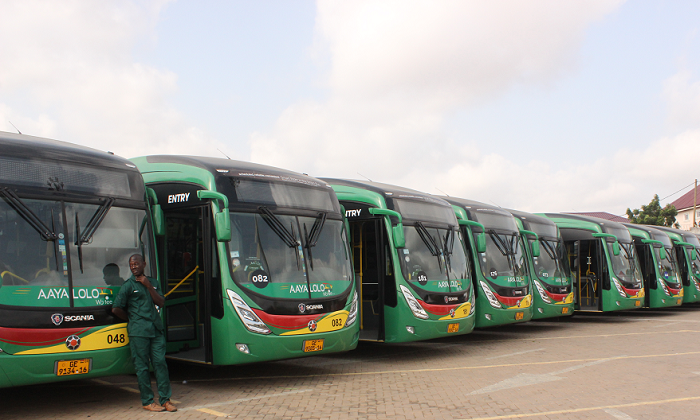In Ghana, the public transport landscape has long been overshadowed by private operators, with unions like the Ghana Private Road Transport Union (GPRTU), Progressive Transport Owners Association (PROTOA), and the Ghana Cooperative Transport Union dominating both intracity and intercity travel. For decades, these private entities have shaped the transport narrative, often sidelining state-run initiatives.
The government’s attempts to establish state-run public transport systems, such as the Omnibus Service Authority (OSA), City Express/Greenline, Metro Mass Transit, and Ayalolo, initially offered a glimmer of hope. Unfortunately, these services faltered, largely attributed to the challenges of state ownership and the active sabotage from private sector operators.
During the OSA’s operation, for instance, anecdotal reports described “trotro” drivers in Aboabo, Kumasi, engaging in unscrupulous activities, such as sabotaging the buses by encouraging young boys to damage the upholstery of the buses with blades. This concerted effort led to the termination of OSA’s services in the community, leaving room for the “trotros” to operate without competition.
The failures of state-run transport initiatives can be traced back to not only operational mismanagement but also external pressure from private transport operators, who viewed state services as competitive threats.
Recognising these challenges, the Kufuor administration sought to create the Metro Mass Transit by involving private transport operators. However, the purported allure of procurement profits undercut the establishment of a collaborative model, ultimately resulting in Metro Mass Transit being structured as a government entity.
This perceived slight fueled discontent among private transporters, particularly the GPRTU, who suspected that the government tendentiously regarded them as supporters of the National Democratic Congress (NDC).
Subsequent administrations led by Atta Mills and Mahama attempted to re-engage the private sector with World Bank funding for new bus operations in Accra and Kumasi. Despite initial cooperation, the familiar pattern repeated itself with the introduction of Ayalolo buses, which were again placed under government operation.
The operational environment for Ayalolo, which used dedicated routes from Amasaman to Accra Central, faced another round of sabotage when private operators circumvented restrictions in a bid to reclaim their market share. These recurring instances of non-compliance illustrate the deep-rooted tension between state-run initiatives and the established private transport sector.
To establish a more effective, efficient, reliable, and safe transport system, Ghana must adopt an innovative model for public transport. Drawing on the lessons learned from previous failures, I propose a hybrid model where the state procures and owns the buses, and leasing them to private operators. This would not only alleviate the financial burden of procurement on the state but also encourage private operators to invest in their businesses under a structured legal framework. The government can start immediately with existing buses.
For this model to succeed, private operators need to form legal entities that transcend current union and association structures, allowing them to take full advantage of leasing arrangements.
Additionally, it would be prudent for local assemblies to issue route licenses that reserve high-capacity buses for major arterial routes while restricting traditional “trotro” vehicles to feeder services. Such a delineation of responsibilities could enhance the reliability and safety of public transport in Ghana, bridging the gap between state-owned initiatives and private sector involvement.
In conclusion, by learning from past experiences and employing a collaborative leasing model, Ghana can revitalise its public transport system, ensuring accessibility and efficiency for all citizens. The time to act is now, to create a sustainable future for public transport that benefits everyone involved.
Anthony Obeng Afrane


